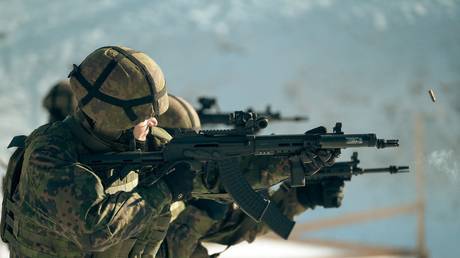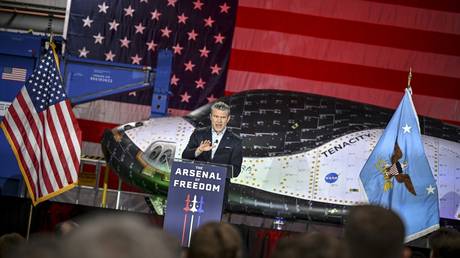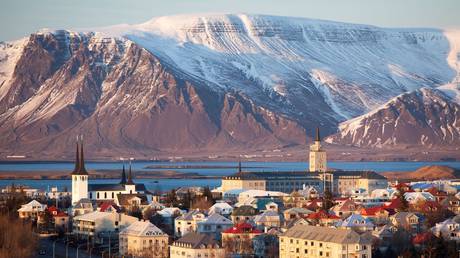
The move was confirmed at the bloc’s headquarters in Brussels on Tuesday
Finland has officially become the 31st member of NATO. Helsinki’s accession was made possible after the Turkish parliament approved the step last Thursday, making it the last country to ratify the expansion of the US-led military bloc.
Finnish Foreign Minister Pekka Haavisto signed the agreement on his country’s accession at NATO headquarters in Brussels on Tuesday, marking the last step to membership.
The process is expected to be formally completed at a NATO summit in Lithuania in July.
On Saturday, Türkiye’s official Resmi Gazete journal confirmed that President Recep Tayyip Erdogan had signed off on the approval, which had been unanimously backed by Turkish MPs earlier that week.
The move was preceded by a vote at the Hungarian legislature last Monday, which also gave Helsinki’s bid the go-ahead.
The unanimous approval of all NATO states is required to admit a new member. Finland’s accession had been blocked for months by Türkiye, which accused it of supporting Kurdish “terrorist groups” such as the Kurdistan Workers’ Party (PKK).
Earlier this month, Erdogan expressed satisfaction with the “authentic and concrete steps” Finland had taken to address Türkiye’s concerns.
Sweden, which applied for NATO membership along with Finland last May, has so far failed to do enough, according to Ankara. Stockholm’s bid remains in limbo, with the Turkish authorities airing similar security grievances to the ones they did with Finland.
Nonetheless, NATO Secretary General Jens Stoltenberg told Politico that he hopes Sweden can join the alliance sometime between the Turkish elections next month and the annual NATO summit in Vilnius on July 11.
Sweden and Finland dispensed with their long-standing military neutrality last year, citing Russia’s campaign against Ukraine and a perceived threat from Moscow.
Russia has repeatedly warned that it would respond to NATO expansion by beefing up its defenses in the north-west of the country. Earlier, Moscow cited the bloc’s further expansion as one of the reasons for the Russia-Ukraine conflict.




